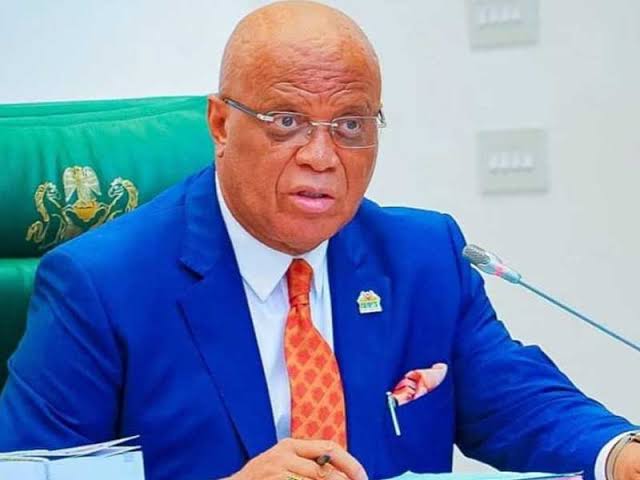Education Experts Seek Re-professionalisation of Teaching to End Poor Pay, Low Status, ,
Funmi Ogundare
A US-based Nigerian academic and Assistant Professor, Department of Agriculture, Fort Hays State University, Kansas, USA, Adeyemi Anjorin Ezekiel, has called for the re-professionalisation of teaching in Nigeria as key to reversing the low pay, poor perception, and gender bias that continue to undermine the profession.
Speaking during a virtual forum organised by Concerned Parents and Educators (CPE) recently, titled, ‘Poor Salary of Teachers and Lecturers’, Ezekiel regretted that teachers remain among the lowest paid professionals globally, from Nigeria to the United States and Japan.
“I don’t know what teachers have done to people that makes society so comfortable underpaying them,” he said. “It’s a global challenge, but in Nigeria, it is worsened by perception, the idea that people who couldn’t get into competitive programmes end up as teachers.”
Ezekiel, who has taught at primary, secondary and university levels, noted that in Nigeria, many people who enroll in colleges of education or Bachelor of Education programmes often do so as a last resort, not by passion, a situation that he said reinforces public disrespect and poor remuneration.
He attributed this perception partly to how teachers are recruited and trained, contrasting it with countries where teaching attracts top talents and is treated as a highly specialised profession.
“Until we change the mindset that teaching is for those who didn’t make the cut-off, we won’t attract passionate, qualified people – and the nation will continue to suffer,” he said.
Child rights advocate and education reformer, Taiwo Akinlami, stressed the need for Nigerian teachers to move beyond complaints about poor welfare and begin to organise collectively to demand better pay, protection and respect for their profession.
He described the condition of Nigerian teachers as a national tragedy, saying that they are vilified, underpaid and insecure, both in public and private schools.
“It takes a secured teacher to raise secured children, yet we keep telling teachers that their rewards are in heaven. If that’s true, then the rewards of politicians and other professionals should also be in heaven.”
Akinlami also lamented the poor remuneration, delayed salaries and hostile work environments teachers endure. He cited a case in Osun State where teachers were owed up to eight months’ salaries, and their children were later required to present tax clearance certificates before being allowed to resume school.
“When you treat teachers like this, you cannot get the kind of results you desire, if we even desire any result at all,” he added.
The education advocate blamed the collapse of the public education system for the rise of poorly regulated private schools, many of which exploit teachers. He said that those responsible for running public schools into the ground are often the same people expected to regulate private institutions, resulting in a conflict of interest.
He also criticised the politicisation of teachers’ unions, particularly the Nigeria Union of Teachers (NUT), which he said has become too cautious to challenge the system.
“Nobody will speak for teachers unless teachers speak for themselves,” Akinlami stressed. “Every association today is almost an appendage of political interests. Power is not given on a platter of gold, it is taken through collective organisation.”
He urged teachers across public and private sectors to form strong, unified bodies that can negotiate fair pay, better working conditions, and professional dignity, similar to the advocacy seen among university unions like ASUU and ASUP.
Dr. Yomi Fawehinmi, HR Executive and Certified Coach, Windsor Ontario, Canada, attributed the persistent poor remuneration of teachers in Nigeria and across the world to two key factors, gender bias and the dominant role of government as the primary employer in education.
He argued that professions dominated by women, such as teaching and nursing, tend to be undervalued and underpaid globally due to longstanding gender biases in the labour market.
He explained that beyond gender disparity, government’s role as the largest single employer of teachers has made it the price determinant for teachers’ salaries worldwide, leading to systemic underpayment.
“Because governments set the benchmark for pay, and governments often do not pay well, teachers end up being poorly paid everywhere. In most countries, the best-paid teachers are in government service – and that sets the tone for everyone else,” he stated.
Fawehinmi also blamed society’s low regard for education and educators as a major contributor to poor teacher motivation, saying that Nigerians often celebrate other professions above teaching.
The verified coach also stressed that the lack of a strong collective voice among teachers has worsened their conditions, as few unions effectively advocate for better pay in the education sector.
In her remarks, a school growth coach and education consultant, Mrs. Beulah Marshall, blamed school owners, saying that sometimes, they don’t make the welfare of teachers their priority.
, Education – THISDAYLIVE, October 8, 2025, 12:00 am












